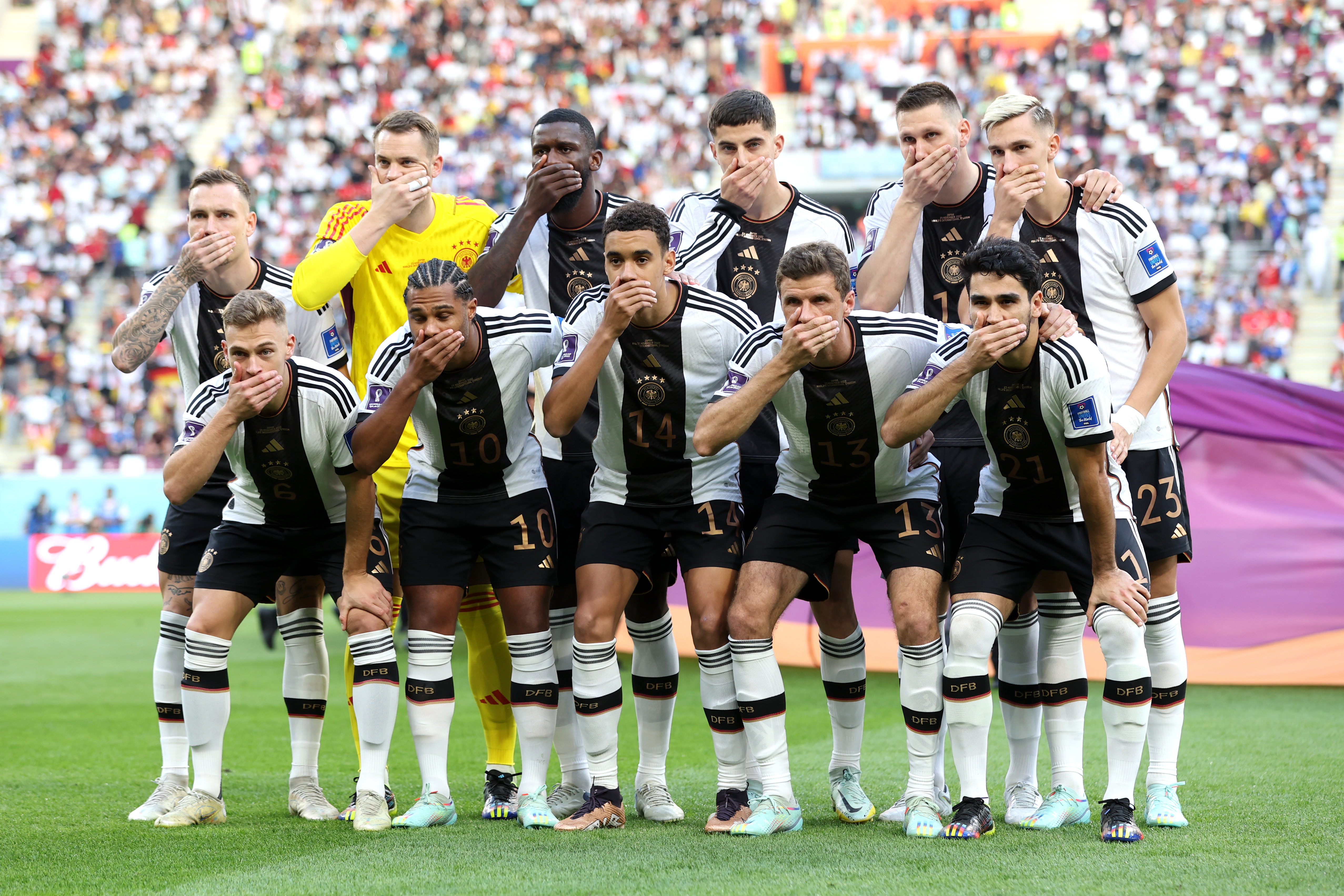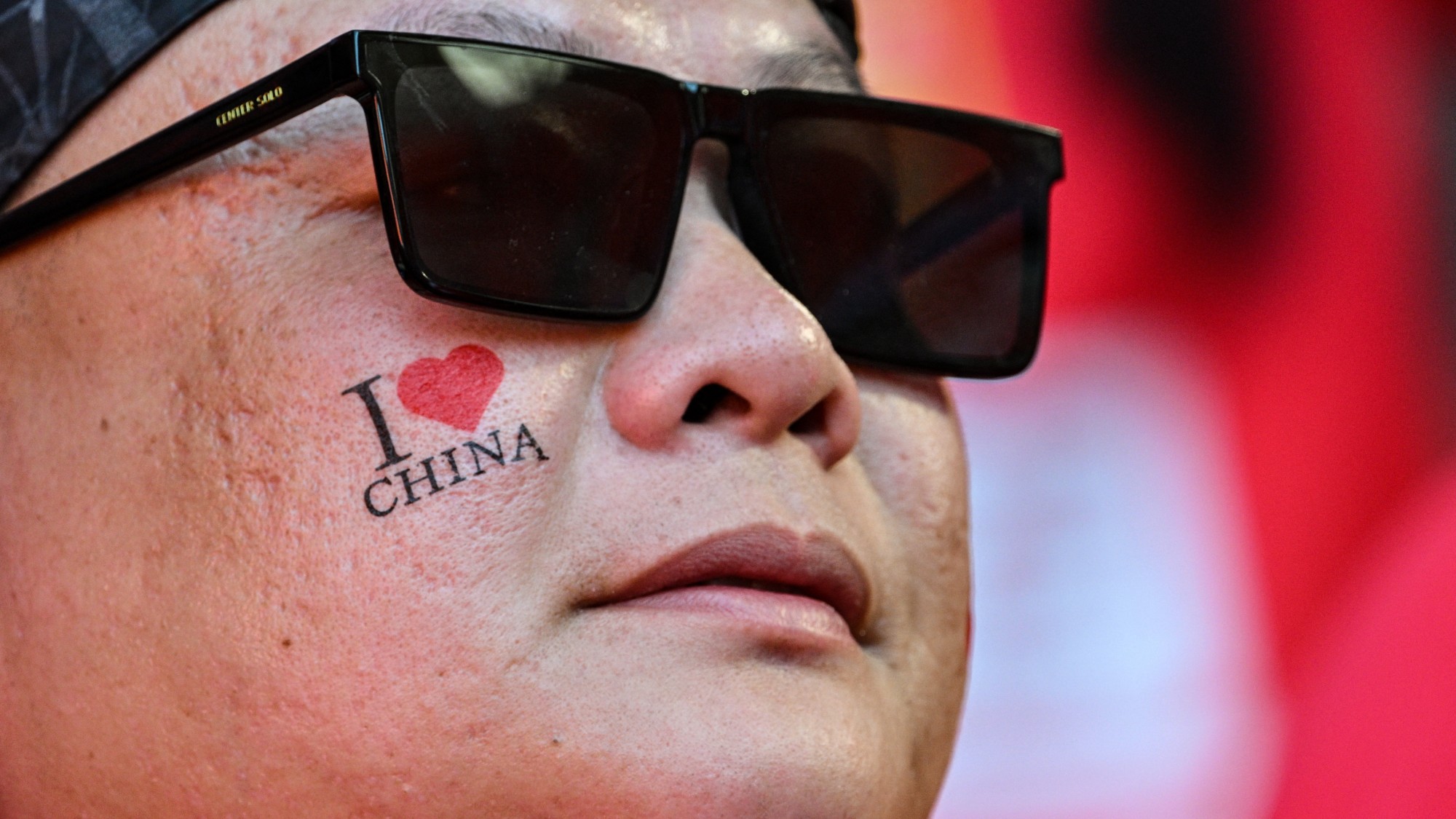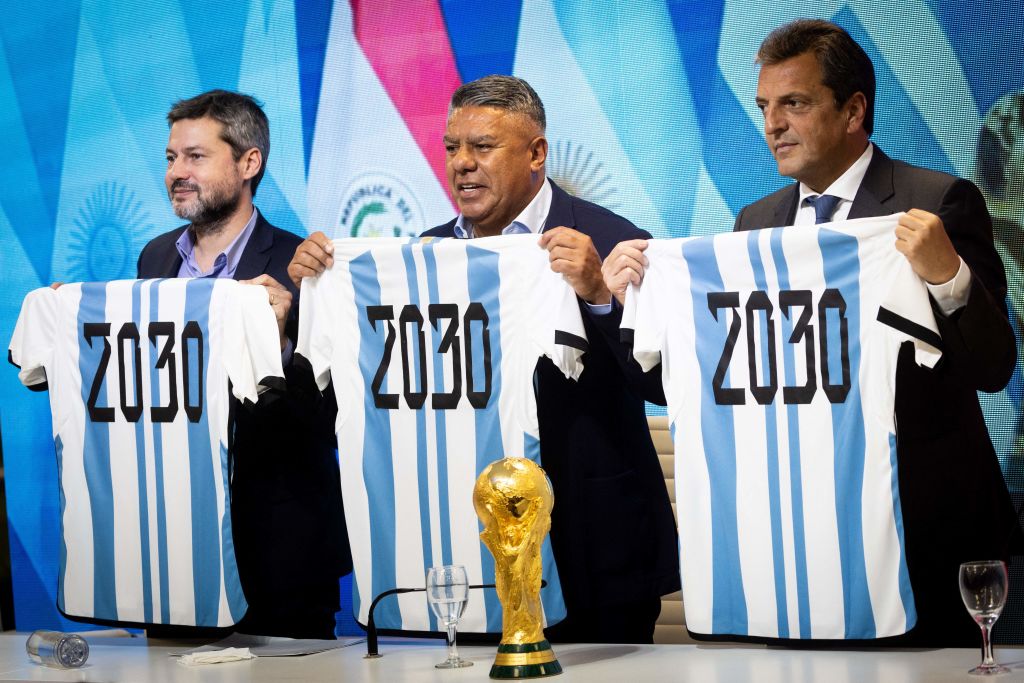The shadow over the World Cup
The global soccer tournament is being hosted by Qatar, a theocratic petrostate with a terrible track record on human rights

A free daily email with the biggest news stories of the day – and the best features from TheWeek.com
You are now subscribed
Your newsletter sign-up was successful
The global soccer tournament is being hosted by Qatar, a theocratic petrostate with a terrible track record on human rights. Here's everything you need to know:
Why Qatar?
FIFA, the governing body of professional soccer, decided in 2010 to award the tiny Middle Eastern nation the right to host the world's most-watched sporting event. This week, Qatar — which is smaller than Connecticut in size and population — welcomes 32 national teams and an estimated 1.2 million fans for the monthlong tournament. Some fans will stay in neighboring countries and on cruise ships docked in the Persian Gulf. About 5 billion people will be watching worldwide. But the games will be played under a cloud — a massive corruption scandal, deadly working conditions, and Qatar's repression of women and LGBTQ people. Even Sepp Blatter, the former FIFA chief banned from the organization five years after Qatar won hosting rights, recently called the choice of that country "a mistake."
Why was it a mistake?
Bribery clearly played a role. Russia and Qatar were among the nine countries vying in 2010 for the 2018 and 2022 games; the U.S. Justice Department has found that both countries paid millions in bribes to buy off FIFA executives. A former Qatari bid worker claimed she witnessed her colleagues directly offer three FIFA officials $1.5 million each in exchange for their votes. Several soccer officials have been convicted of crimes connected to the corruption scandal. Though Qatar still denies paying bribes, it has spent lavishly to make itself a name in global sports as a form of public relations — a practice called "sportswashing." Since winning the 2022 World Cup, Qatar has sunk more than $220 billion into a massive construction campaign. Some of the seven World Cup stadiums now built are air-conditioned, because summer temperatures can reach 120 degrees and threaten athletes' health. To avoid the impact of that heat on fans, FIFA eventually moved the start of the Qatar games from June to November. But that was of little comfort to the 2 million migrant workers who built the stadiums by spending long, grueling days working in the extreme heat.
The Week
Escape your echo chamber. Get the facts behind the news, plus analysis from multiple perspectives.

Sign up for The Week's Free Newsletters
From our morning news briefing to a weekly Good News Newsletter, get the best of The Week delivered directly to your inbox.
From our morning news briefing to a weekly Good News Newsletter, get the best of The Week delivered directly to your inbox.
What were their working conditions?
Abysmal. Until August 2020, Qatar's kafala system forbade migrants from leaving their jobs or the country, effectively rendering them indentured servants. Despite that system's formal abolition, some companies still exert near-total control over workers. Poor migrants from Asia and Africa have performed hard labor in sweltering heat for little or no pay, enduring squalid living conditions, infrequent water breaks, and physical assaults. Last year, The Guardian reported that more than 6,500 workers from Bangladesh, India, Nepal, Pakistan, and Sri Lanka have died since Qatar won hosting rights. The government disputes that figure, but it categorizes nearly 70 percent of the deaths of South Asian laborers as "natural" — even though they were mostly young men who all had to pass health screenings to get visas. Doctors in Nepal have noticed high rates of organ damage among returning migrants. Amit Ali Magar was 22 when he left the country to help construct a World Cup stadium in the capital Doha in 2018; after working shifts of up to 20 hours and enduring nosebleeds and vomiting spells, he returned home. He suffered extensive kidney damage and must undergo dialysis for the rest of his life. "It was really torture to work there," he said.
How does Qatar treat its own citizens?
The state's sharia-based legal code limits women's rights and outlaws homosexuality. Young women need a male guardian's permission to marry, leave the country, or work in certain jobs. Sex outside of marriage is outlawed. Women who file rape charges can find themselves prosecuted and flogged if authorities decide the encounter was consensual. Hospitals have reported unwed mothers to the police. Qatar is one of 11 countries that make homosexuality potentially punishable by death, though gay and lesbian people are more commonly imprisoned or beaten.
Are visitors immune from these laws?
That isn't entirely clear. Qatari Emir Sheikh Tamim bin Hamad al-Thani said in May that, while "all people are welcome" to the games, "we also expect and want people to respect our culture." FIFA claimed in a recent presentation that it was directing Qatari authorities to allow peaceful protests, LGBTQ symbols, and public kissing by fans and athletes — but a Qatari official said that no such policy had been approved. So no one knows how Qatar will respond. The U.K. is sending "engagement officers" to protect British fans from overzealous police.
How have other nations reacted?
The U.S. team has incorporated rainbow colors into its badge in a show of LGBTQ solidarity, with goalkeeper Sean Johnson calling the move "a sign of our values and what we represent." Australia's players released a video criticizing Qatar for its treatment of gay people and migrant workers. Some cities in France and the U.K. have canceled broadcasts of the games in public places. But in most of the soccer-obsessed world, the World Cup is just too important to boycott or ignore. Magar, the Nepali construction worker on dialysis, grew up idolizing players such as Neymar and Lionel Messi. Despite the lasting damage his time in Qatar did to his health, he still plans to watch. "The great players will be playing there," he said. "So I'll be proud to say that this is the stadium I helped construct."
A free daily email with the biggest news stories of the day – and the best features from TheWeek.com
Bracing for rowdy crowds
The World Cup tends to be a raucous affair, with fights, binge drinking, and wild parties — all normally taboo in Qatar's deeply conservative society. Alcohol is banned outside a few restaurants and hotels. FIFA had initially struck an agreement with Qatar to have beer sold in World Cup stadiums and in nearby tents. Last week, though, talks with the government fell apart, and it announced that alcohol would be banned in the buildings and their grounds. Still, to create an impression of an open society, Qatar has sought to enliven sleepy Doha's nightlife with multiple giant electronic music festivals. Many Qataris are well aware that they could be punished if they respond to these superficial gestures toward liberalization for foreign visitors by speaking their minds. "If a citizen thinks to criticize," said 38-year-old Qatari citizen Mohammed al-Kuwari, "a [prison] sentence awaits him."
This article was first published in the latest issue of The Week magazine. If you want to read more like it, you can try six risk-free issues of the magazine here.
-
 The 8 best TV shows of the 1960s
The 8 best TV shows of the 1960sThe standout shows of this decade take viewers from outer space to the Wild West
-
 Microdramas are booming
Microdramas are boomingUnder the radar Scroll to watch a whole movie
-
 The Olympic timekeepers keeping the Games on track
The Olympic timekeepers keeping the Games on trackUnder the Radar Swiss watchmaking giant Omega has been at the finish line of every Olympic Games for nearly 100 years
-
 Will 2026 be the Trump World Cup?
Will 2026 be the Trump World Cup?In the Spotlight US president already using the world’s most popular football tournament to score political points
-
 World Cup 2026: uncertainty reigns with one year to go
World Cup 2026: uncertainty reigns with one year to goIn the Spotlight US-hosted Fifa tournament has to navigate Trump's travel bans, logistical headaches and an exhausting expanded format
-
 China's football crisis: what's happened to Xi's XI?
China's football crisis: what's happened to Xi's XI?In The Spotlight String of defeats and finishing bottom of World Cup qualifying group comes a decade after Xi Jinping launched a football crusade
-
 Saudi Arabia World Cup: have lessons been learned from Qatar?
Saudi Arabia World Cup: have lessons been learned from Qatar?Today's Big Question Human rights groups fear a repeat of issues at the 2022 tournament
-
 FIFA is embroiled in back-to-back controversies around the World Cup
FIFA is embroiled in back-to-back controversies around the World CupUnder The Radar The controversial selection of the 2030 hosts puts Saudia Arabia in a prime position for 2034
-
 Saudi Arabia's 2034 World Cup: glitz, glamour and 'grimly inevitable'
Saudi Arabia's 2034 World Cup: glitz, glamour and 'grimly inevitable'Talking Point Critics claim country is guilty of sportswashing as it stands unopposed to host tournament
-
 An early look at the college football national champion contenders
An early look at the college football national champion contendersThe Explainer What school could come out on top of the FBS this coming January?
-
 Why baseball's new rules rule
Why baseball's new rules ruleSpeed Read Attendance and viewership have gone up while average game time has gone down